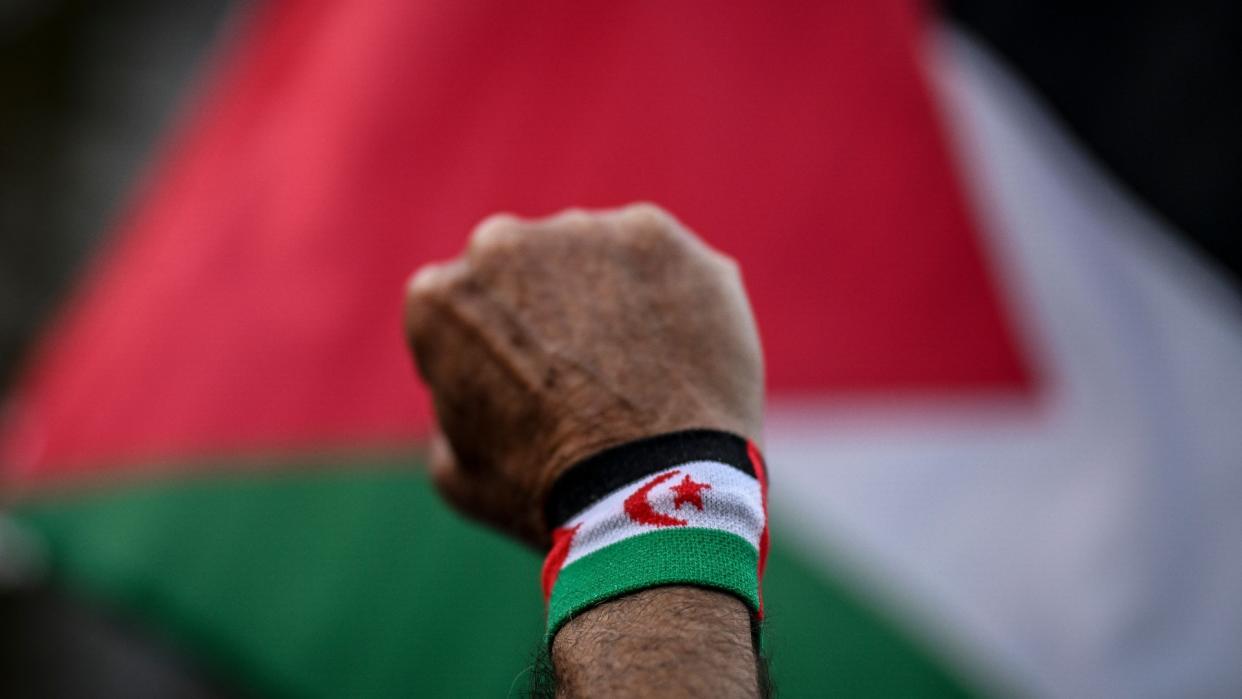What Hamas is trying to accomplish in the Middle East

As Israel declares all-out war against Hamas, the Islamist group will be hoping its unprecedented assault will shore up Palestinian support and derail moves towards a wider Arab-Israeli settlement.
In a statement released on Saturday, Hamas’s military commander Mohammed Deif listed Israel's long-running blockade of Gaza, its occupation of Palestinian lands, and its alleged crimes against Muslims, including the desecration of the Al-Aqsa mosque in Jerusalem, as prime drivers behind the attack.
With Israel now vowing to wipe out Hamas once and for all, the decision to "wittingly, knowingly, undertake" such an action may on the surface appear "suicidal", said The New Yorker, but it comes from a sense that "there are no other options and that there's nothing left to lose".
What are Hamas's aims?
In many ways Hamas's attack on Israel sums up the "essence of terrorism", wrote Michele Groppi, lecturer in defence studies at King's College London, for The Conversation. It was designed to inspire fear in the population, he said, while also provoking Israel into increasing regional tensions. This would shore up Hamas's political position at a time when it is facing growing opposition in Gaza and when the Arab world – most notably Saudi Arabia – has been working towards normalising relations with Israel.
Just last week, Saudi Crown Prince Mohammed bin Salman said “every day we get closer” to a deal with Israel, which would have seen both countries formally recognise each other within a security, defence and economic partnership with the US. Saturday's invasion seems to "derail that in the near term, just as Hamas intended", said Time magazine.
There is "simply no way" the Israeli government will now not unleash the Israel Defense Forces (IDF) on the Gaza Strip on the ground, in the air, and by sea to destroy Hamas, said security expert Steven A. Cook on Foreign Policy.
This, he said, "changes everything", and means "the starting point for the new Middle East will be an Israeli reoccupation of the Gaza Strip, not an Israeli Embassy in Riyadh".
An Israeli invasion of Gaza is likely to unite Palestinian factions and their international allies and could also provoke a "significant attack" against Israel by Hezbollah, the Iran-backed militant group in Lebanon, "risking a wider conflagration in the region", reported the Council on Foreign Relations.
What is the history of Hamas?
An acronym of Harakat al-Muqawama al-Islamiya, meaning Islamic Resistance Movement, Hamas emerged in the late 1980s as the political arm of the Muslim Brotherhood in Gaza. This followed the outbreak in 1987 of the first intifada, the Palestinian uprising against Israeli occupation of the West Bank, Gaza and East Jerusalem.
Its belief in violence as the ultimate means to achieve its objectives was set out in its founding charter, which stated: "There is no solution for the Palestinian question except through Jihad. Initiatives, proposals and international conferences are all a waste of time."
It soon put this belief into practice, first employing suicide bombing in 1993 as an attempt to derail the Oslo peace accords between Yasser Arafat, leader of the Palestine Liberation Organization, and Israeli prime minister Yitzhak Rabin. Hamas, which would be designated a terrorist organisation by the US in 1997, condemned the accords, which established limited self-government for parts of the West Bank and Gaza. This did not stop the group from taking control of the Gaza Strip via the ballot box after defeating its rival political party, Fatah, in elections in 2006, a year after Israel ended its occupation of the territory.
While it continued to carry out sporadic attacks in the years since, in 2017, in what the Council of Foreign Relations called "an attempt to moderate its image", Hamas presented a new charter that accepted an interim Palestinian state along the "Green Line” border established before the Six-Day War of 1967 but that still refused to recognise Israel.
Now this apparent move towards moderation lies in tatters.
Why now?
In recent weeks there has been a resumption of protests along the border fence surrounding Gaza, a deterioration in conditions in the territory, and a withdrawal of support for Hamas from Qatar. Nevertheless, the "key to the timing of this assault is the wider context in the region, not least the ongoing US-brokered normalisation between Israel and Saudi Arabia that has been gathering pace recently", said The Guardian.
The reality, said the paper, is that while Hamas has dressed up its attack as a response to Israeli incursions around the Al-Aqsa mosque in Jerusalem, "it chose to trigger this conflict – at this time and in the way it did – as a way to impose itself in that wider diplomacy".
That it occurred on the 50th anniversary of the start of the Yom Kippur War, when Egypt and Syria launched a joint offensive that caught Israel's vaunted intelligence services by surprise, has given the attack added symbolism that is "vital" for terrorists, said Groppi. "It enables them to blow things out of proportion and bring people's worst nightmares to life. In this sense, Hamas did it all."

